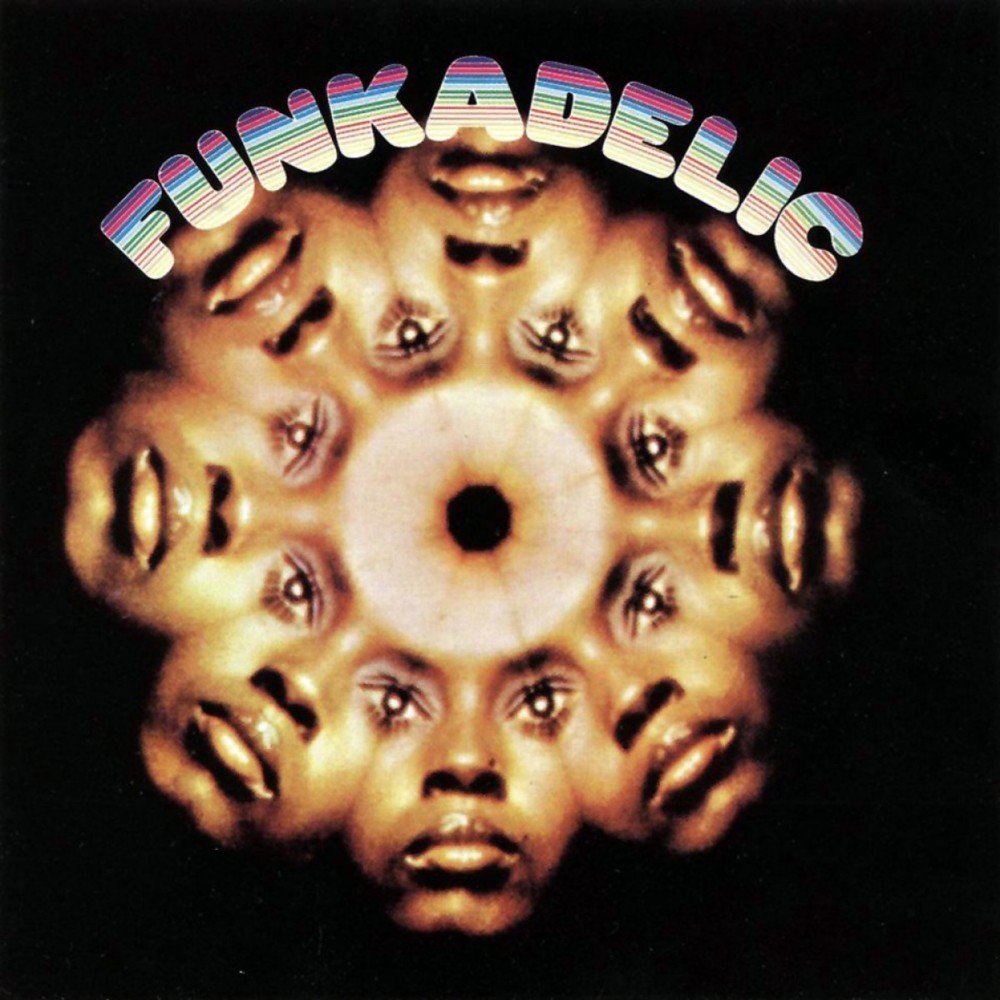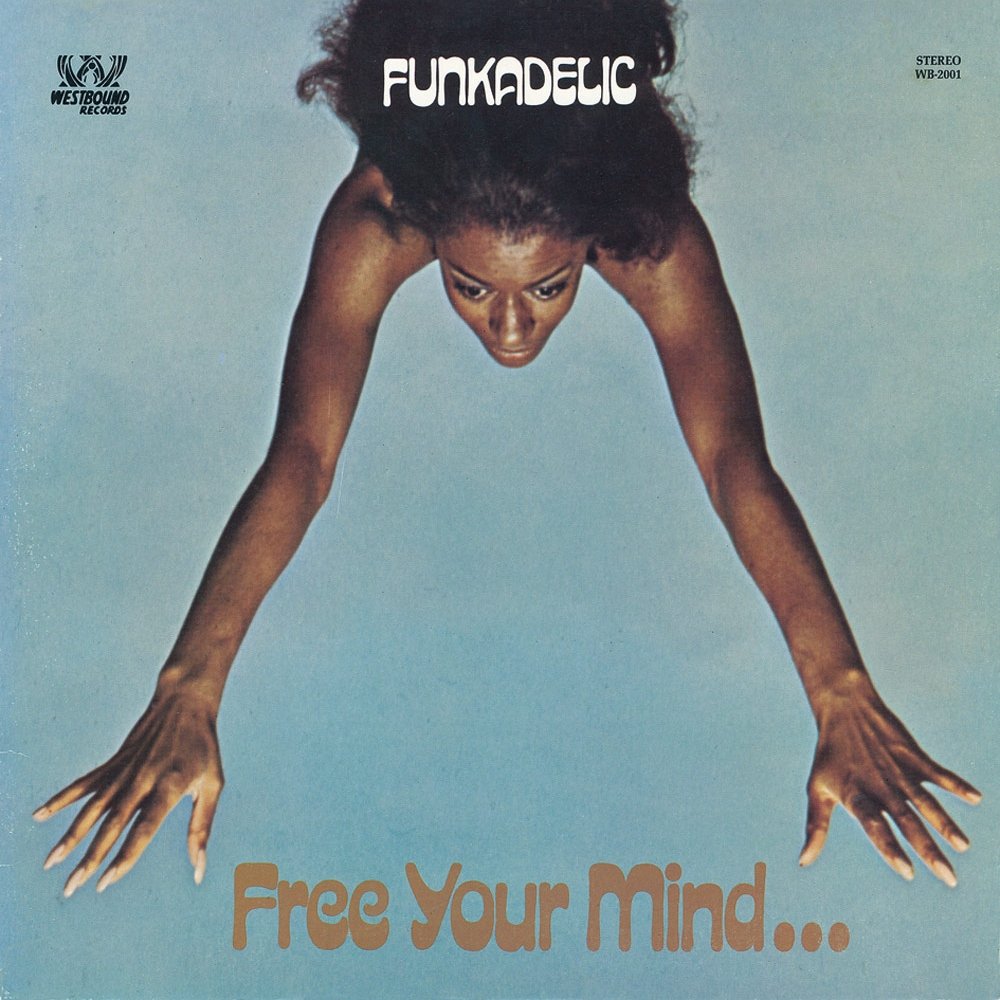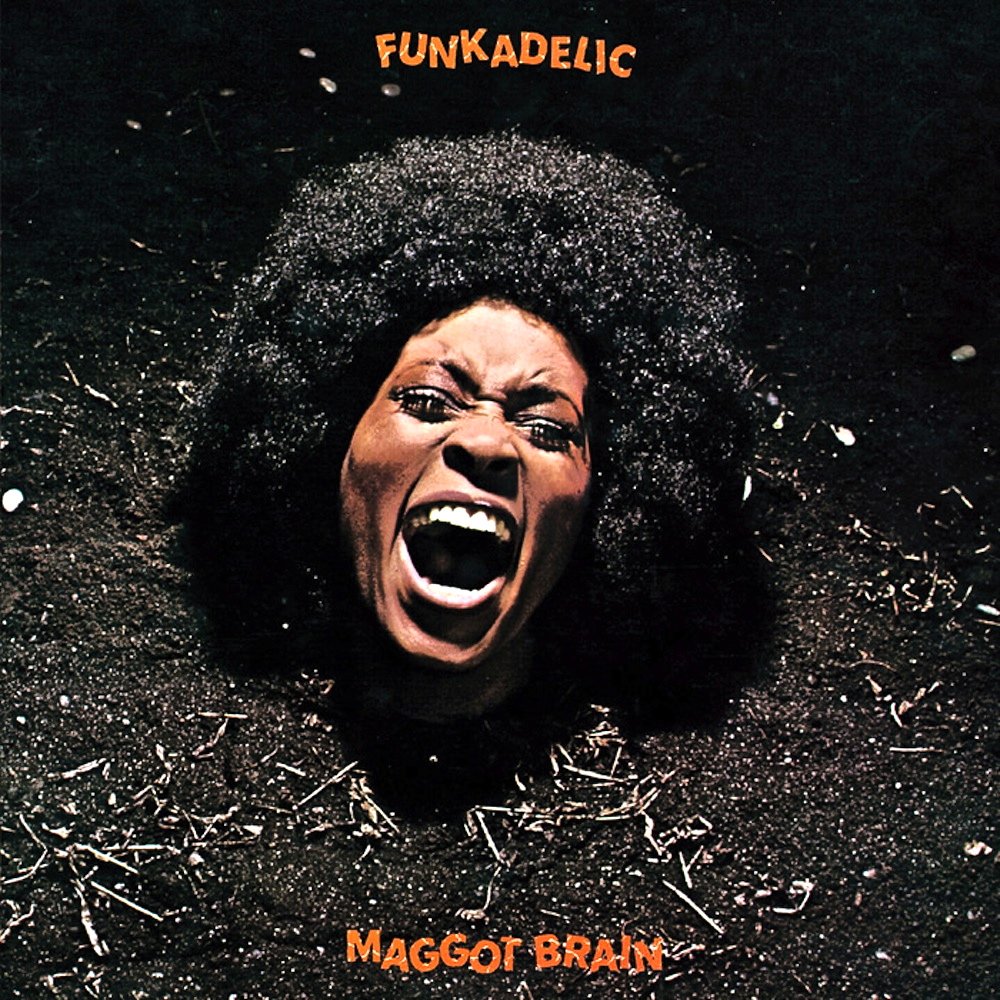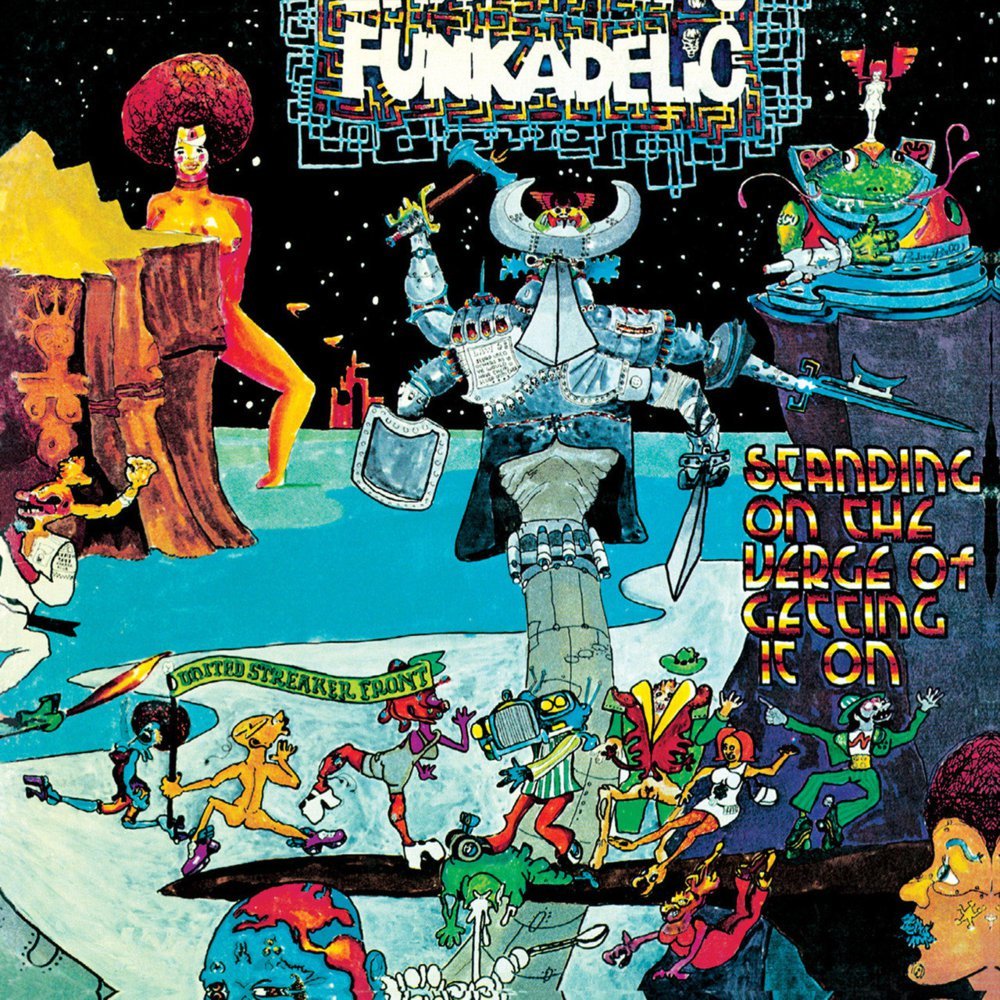Happy 50th Anniversary to Funkadelic’s fifth studio album Cosmic Slop, originally released July 9, 1973.
In late April 2018, George Clinton announced that he was soon going to retire from touring. It wasn’t a real shock, as the funk and musical icon was then close to 80 years old and has been staring down health issues for quite some time. Clinton is, of course, the brainchild (or Starchild) and driving force behind Parliament-Funkadelic, the definitive funk group of the late ’60s/early ’70s and the pioneers of the funk sound.
Clinton and Parliament-Funkadelic are best known for albums like Mothership Connection (1975) and One Nation Under a Groove (1978). But when the epitaph for the group is eventually written, Cosmic Slop really deserves its fair share of love and recognition. It’s a reminder that Clinton first created Funkadelic in 1970 to push boundaries. The group was conceived as a hard-driving, blues and rock influenced funk group, spinning warped grooves, fueled by equal parts THC and LSD.
Cosmic Slop is an eerie, disturbing funk fusion masterpiece. Released 50 years ago, it remains one of the strongest entries across the group’s discography. The tone of the album vacillates between charged gallows humor and wading through a dreary swamp of emotion. The group is able to navigate both in such an expert matter, that the wild mood swings are barely noticeable.
The underlying theme of Cosmic Slop, like much of the Clinton-fronted catalogue, is sex. However, the album is mostly interested in the “dark” side of what goes along with the physical act. Sometimes it leads to heartache. Sometimes it leads to shame. Often it’s the cause of torment.
Cosmic Slop also introduced two crucial elements to the Funkadelic mix. The first was singer/guitarist Garry Shider. The New Jersey-born “Diaper Man” was known for his piercing falsetto that contrasted well with the baritone vocals of singers like Calvin Simon. The other addition to the collective helped define Funkadelic visual element: Cosmic Slop featured the first gate-fold cover art by Pedro Bell. Bell’s elaborate, sexually charged, and simultaneously disturbing illustrations and liner notes were intrinsic to the group’s vision.
Listen to the Album:
The songs on Cosmic Slop generally fall into two categories: structured songs or extended jam sessions. In the case of the latter, these are often mostly or almost entirely instrumental, featuring either funk or rock based-grooves. However, some do feature lyrics, usually in the form of spoken word pieces performed by Clinton himself. On “Nappy Dugout,” the funk mostly speaks for itself. The guitar-heavy rolling groove makes the song about as “accessible” as anything on the long-player, even as it’s punctuated by soulful percussion that sounds like duck calls and whistles sprinkled throughout.
Clinton and crew show the lighter side of one of the group’s darker albums. “No Compute” is a raunchy story of the pursuit of sex and the regret that can come with it. Backed by lighter guitar grooves, Clinton tells of waking up from a wet dream, “hornies occupying my being,” on a quest to find a sexual partner, and how it ends poorly.
“Trash A Go-Go” is a two-and-a-half minute hard rock vamp featuring the story of a pimp facing his day in court in front of an unsympathetic judge and jury. It begins with a solid drum intro, leading to hard-charging funky guitars, as the narrator impotently pleads innocence, insisting, “When getting over is high above your head and getting high can get you dead, what are you supposed to do?”
Things take a decidedly darker turn on “March To the Witch’s Castle,” a song about veterans of the Vietnam War. As Clinton writes in his autobiography, Brother Be, Yo Like George, Ain’t That Funkin’ Kinda Hard On You, “the hangover of Vietnam changed the way the nation thought about itself,” and like many rock and soul groups of the time, Funkadelic followed suit.
Using deep vocal distortion studio magic, Clinton tells of the 591 prisoners of the war returning to the United States on February 12, 1973, as a result of “Operation Homecoming.” He describes the difficulties faced by those who were left shell-shocked, anchor-less, drug-addicted and disillusioned by their experiences. Many struggled to re-adjust to their “normal” lives as they make their slow march to the White House (the “Witch’s Castle” of the title).
In the words of Clinton in his autobiography, “It was structured like a sermon, or a news report of after a benediction.” In the midst of the track, he intones, “Father, bless the soldier who has returned home from the war. He has fought with all his might, yet he knew not for what or who he was fighting for.” He directs much vitriol towards Richard Nixon, lamenting, “Someone said this war ended with ‘Peace with honor,’ but can there truly be? Is there such a thing? Thousands of boys gave their life, and for what? Do anybody know?” The mournful guitars perfectly convey hopelessness and despair.
Enjoying this article? Click/tap on the album covers to explore more about Funkadelic:
When it comes to the traditionally structured songs on the album, most deal with love, particularly its loss and occasionally the sacrifices you make for it. “You Can’t Miss What You Can’t Measure” is a light-hearted entry about learning to cope after the love of your life leaves you for another man. Some of the imagery is on the goofy side, with Clinton singing about “turning green from being blue” and teardrops flooding his home, but there is a good deal of poignancy about how draining loneliness can be. “This Broken Heart” is a funky yet melancholy spin on a doo-wop song of the same name by The Sonics. The towering strings performed by Bernie Worrell dominate the song, giving it an air of majesty.
Cosmic Slop peaks with its title track, not only the best song on the album, but also one of the greatest songs that Funkadelic ever recorded. It’s a complex composition and proto-heavy metal track that seethes with despair. Shider, in a masterful vocal performance, conveys the tale of a single-parent, five-child family living in poverty, and the sacrifices the mother must make in order to put food on the table, including prostituting herself. He conveys the pain and anguish faced by the mother, assuming the perspective of one of the mother’s sons.
In a particularly powerful passage, Shider describes hearing his mother’s prayers for forgiveness in the dead of night, begging, “Father, Father it's for the kids / Any and everything I did / Please, please don't judge me too strong / Lord knows I meant no wrong.” The refrain of “I can hear my mother call…” echoes throughout the song, bolstered by the wail of guitars, courtesy of Shider and Ron Bykowski, and the pounding percussion.
The album ends with “Can’t Stand the Strain,” a sort-of prequel to “You Can’t Miss What You Can’t Measure.” The song describes the feeling of watching love slip away, clueless as to the cause, helpless to stop it from happening. “I'm losing you, I don't know why, tell me what can I do / I don’t want to say anything, just to hold on to you,” Shider cries, pleading that he lacks the stamina to cope with a break-up.
In his auto-biography, Clinton writes how Cosmic Slop was fueled by strangeness, style, broad scope, gallows humor, and visionary imagination. But he acknowledges that the group’s ambitions of continuing on that path were unsustainable. “We got out there,” he wrote, “and the view was breath-taking, but the air was thin.”
Unsurprisingly, Clinton didn’t actually retire from touring in 2018. In fact, five years later, he’s again teasing that the 2023 Parliament-Funkadelic tour is going to be their last hurrah. I remain doubtful of the veracity of that claim. However, whenever and wherever the band does perform, I certainly hope they continue to give space on their set list to “Cosmic Slop” and “You Can’t Miss What You Can’t Measure.” These songs are as vital to the group’s legacy as anything they ever recorded.
Editor's note: this anniversary tribute was originally published in 2018 and has since been edited for accuracy and timeliness.





